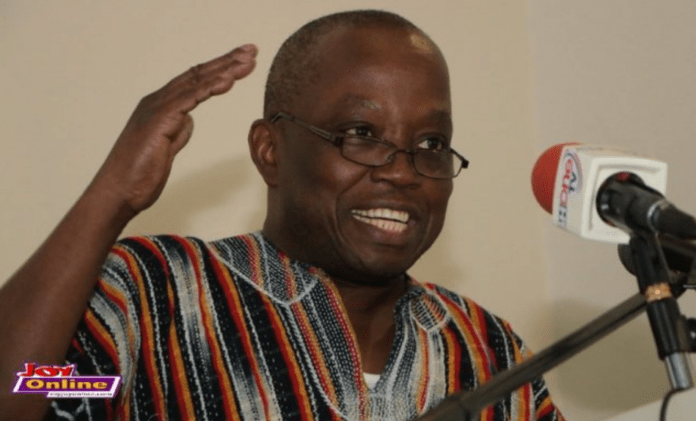Former Auditor-General, Daniel Yao Domelevo, has suggested that some banks are aiding corrupt activities by failing to question suspicious financial transactions involving large sums of money.
Mr Domelevo expressed concern that while banks often demand identification from customers for minor transactions, they appear reluctant to raise the alarm when substantial sums are moved through their systems.
He argued that such selective enforcement of banking regulations makes financial institutions complicit in corrupt practices.
“If you go to the bank today and you want GH¢100,000, you remember the controls they put in place; they want you to bring your Ghana Card, validate, and so on, and so when you hear these amounts are going through the same banks, it means the fraudsters are also in the banks or the banks are also colluding,” he said on JoyNews’ Newsfile on Saturday while discussing the recent corruption cases revealed by the Attorney General and Minister for Justice, Dr Dominic Ayine.
Recently, the Attorney General noted that the government has demanded a refund of $2 million from JA Plant Pool Ghana Limited following the alleged discovery of financial irregularities in the District Road Improvement Programme (DRIP) contract.
Dr. Ayine also stated that investigators have uncovered a sophisticated money-laundering operation involving suspicious transfers amounting to over GH¢40.5 million through Sawtina Enterprise, a company allegedly linked to the former CEO of the National Food Buffer Stock Company, Abdul-Wahab Hannan.
According to the Attorney-General, the financial transactions were carried out through several bank accounts belonging to the suspects.
Mr Domelevo therefore urged regulatory bodies to compel banks to strictly monitor and report unusual or unlawful financial transactions, stressing that greater vigilance from the banking sector is crucial to curbing corruption in the country.
“We must have to go there and shake the banks because I can’t understand how some of these things will go through financial institutions which are not asleep.”
Source: Albert Kuzor
ALSO READ:



